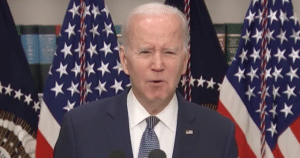Biden Convinced Sullivan to Stay Amid Afghanistan Exit Turmoil
The departure from Afghanistan in 2021, described by many as tumultuous, nearly led to Jake Sullivan's resignation as President Biden's national security adviser. In the aftermath of the withdrawal, President Joe Biden reportedly persuaded Sullivan to remain in his role despite the chaos and loss.
The withdrawal from Afghanistan led to fatalities among U.S. service members and strained relationships within the presidential team.
Sullivan's offer to resign followed a disastrous withdrawal that saw the Taliban regain control over Afghanistan and the loss of over a dozen American service members. The event unraveled the harmony within Biden's national security team, creating a rift between Sullivan and Secretary of State Antony Blinken.
Contention Over Afghanistan Withdrawal Decisions
Amid the chaos, the Pentagon stood opposed to Biden's push for a full withdrawal, advocating instead for maintaining a small force of 2,500 troops in Kabul. Although Sullivan initially shared the military's caution leaning towards retaining a residual force, he eventually endorsed Biden's full withdrawal decision. This decision, however, was not without its consequences as tensions grew within the national security apparatus.
Reports from journalist Alex Ward indicate that some advisers did not verify Sullivan's resignation offer. Neither the White House nor the National Security Council provided comments to clarify these claims further. Sullivan addressed the complexity of the situation, noting that exiting a long-standing war like Afghanistan inevitably involves challenges. "Leaving Kabul freed the [United States] to deal with Russia’s invasion of Ukraine in ways that might have been impossible if we had stayed," Sullivan argued, highlighting a strategic realignment of priorities.
Impact on Relationships Within Administration
The aftermath of the withdrawal left apparent marks on intra-administration relationships, no less between Sullivan and Blinken. The early collegial spirit of the national security team reportedly eroded amid the Afghanistan exit. The Pentagon's resistance and Sullivan's subsequent alignment with Biden exposed fissures.
In analyzing his performance, Sullivan remained confident in the broader strategic outcomes achieved under his tenure. He stressed the strengthening of American alliances, weakening of its adversaries, and avoidance of further conflict. These achievements, according to Sullivan, have improved the U.S.'s stance in its long-term rivalry with China while stabilizing bilateral relations.
Sullivan's Reflections on Strategic Decisions
Discussing the broader geopolitical implications, Sullivan connected the decision to depart Kabul with subsequent American actions, such as enhanced responsiveness to the Ukraine crisis. His reflection on the strategic standpoint underscored a pragmatic assessment of the choices made during the turbulent period.
Despite differing opinions on the Afghanistan strategy, the decision was depicted as a binary choice: either leaving and facing difficulties or committing indefinite military presence. Sullivan's acknowledgment of the complexities reflects a nuanced understanding of the consequences that ensued.
Broader Implications of Political Decisions
According to Sullivan, the fallout from Kabul's exit was a necessary step towards recalibrating U.S. foreign policy priorities. By closing Afghanistan's chapter, the administration sought greater flexibility in addressing issues like Russia’s actions in Ukraine.
In reflecting on hypothetical outcomes, Sullivan emphasized that the cessation of American military presence in Afghanistan was essential for exerting influence elsewhere. This strategic repositioning reflects a calculated shift in focus, positioning the U.S. to tackle threats and opportunities on a global scale more effectively.
Ultimately, Sullivan's contemplated resignation and President Biden's insistence that he remain juxtaposed against a backdrop of complex foreign policy decisions. This episode underscores the tensions and challenges inherent in national security roles, where decision-making reverberates through the layers of governmental policy and its execution. Sullivan's statements reveal an ambition to balance immediate risks with long-term strategic gains, a balancing act emblematic of the multifaceted nature of global diplomacy.



